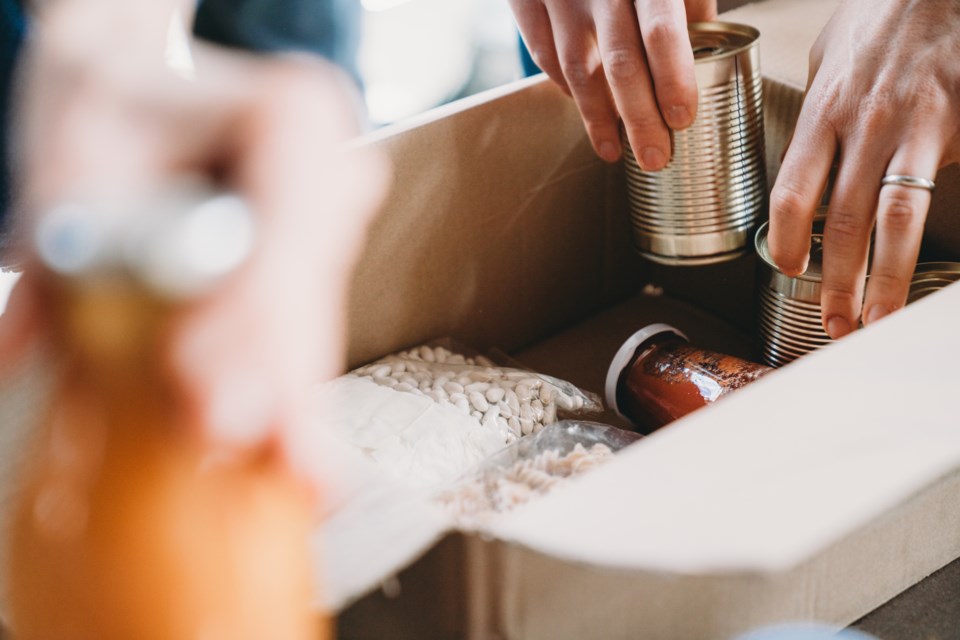The Lord’s Bounty Food Bank is busier than ever this year, but is still offering and expanding its services.
The group has seen a 40 per cent increase over the past six months in people coming in to its Hiawatha Avenue base, located in the former St. Mary’s Ukrainian Catholic Church, in need of food.
“There's a 40 per cent increase. It’s a peak for our numbers, over 10 years,” said Alison Dallas-Funk, director of the food bank, during the June 7 meeting of Flin Flon city council.
Dallas-Funk said about 398 people accessed the food bank last month - by contrast, before COVID-19 hit, the food bank’s busiest year was in from Sept. 2017 to Sept. 2018, when about 266 visits a month were logged.
“The main difference in the food bank is the demographics changing. It's not the typical food supply that everybody thinks about. It's more working people or laid off - more families, more younger families, which we usually don’t have,” she said.
While more people have relied on the food bank to fill barren shelves, some community organizations have stepped up to help. The food bank has been working with the Flin Flon chapter of the Salvation Army, which provides lunches on Mondays and Fridays for much of the year - the Salvation Army’s feeding program does not continue in the summer months, but Dallas-Funk said other community organizations have picked up the slack. When the Salvation Army isn’t able to hold the program, the Rotary Club and food bank provides lunches.
“They’re doing 200 a day and running out,” said Dallas-Funk, who said the lunches have been made accessible to people ranging from adults down on their luck to kids at nearby Ruth Betts Community School, to people at the Aspen Grove apartment complex, where food is transported from the food bank.
“It’s accessible to anybody,” she said.
Throughout the year, the food bank, Flin Flon Aboriginal Friendship Centre and other groups make food available to the hungry either every weekday or close to every weekday - an almost unheard of rate.
“We talk about being a small community with a big heart - every day of the week, people can access food in Flin Flon, which is almost unheard of,” Dallas-Funk said.
“On Monday, you can get lunches - Tuesday, you can do the food bank. On Wednesday, you can do the food bank and a lunch at the Friendship Center, Thursday at the Food Bank because we extended our hours and Friday lunch as well. Some food banks or lunch programs are once a month.”
During COVID-19, the need for food was helped out by other organizations providing food hampers, as well as people qualifying for the Canadian Emergency Response Benefit (CERB) Now though, most organizations that provided food have since stopped, as has CERB, leaving people with fewer places to go.
“For the last consecutive six months, especially since CERB has been cut off - because for the qualified person, that person was spending $2,000 when before they were spending for $400, then all of a sudden it’s taken away,” said Dallas-Funk.
The food bank has also held cooking classes, tax clinics and other community clinics before and during the pandemic.
Doing classes, feeding programs or food care recently hasn’t been easy nor cheap, with food prices rising. Dallas-Funk said the group has seen its food expenses climb, talking about a recipe program specifically that saw its price jump.
“We can usually run that program for $1,000. This year in November, it was $1,300. Exact same food care. When I’m thinking groceries are expensive? That’s how it’s going," she said.
In addition, Dallas-Funk said the food bank and Friendship Centre have been monitoring homelessness in Flin Flon - she said there are around 78 homeless people in need in the community, by their count.
“For two months, I gathered information on homelessness. When people here think of homelessness, everybody thinks, ‘oh, people on Main Street, people on Main Street’, but that's like a group of 10-15 people. That's not the reality of it,” said Dallas-Funk.
“Because homelessness is if you don't have a permanent address, so you can be couch-surfing or four families in a house and all that kind of stuff.”




